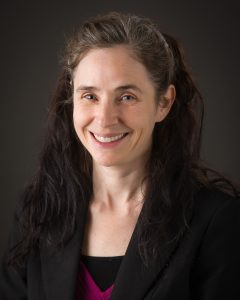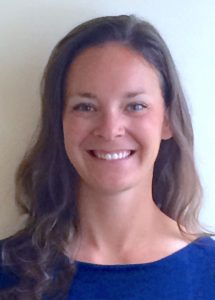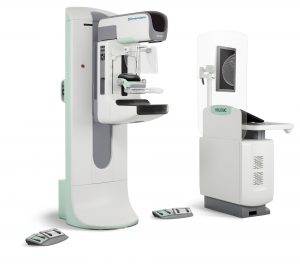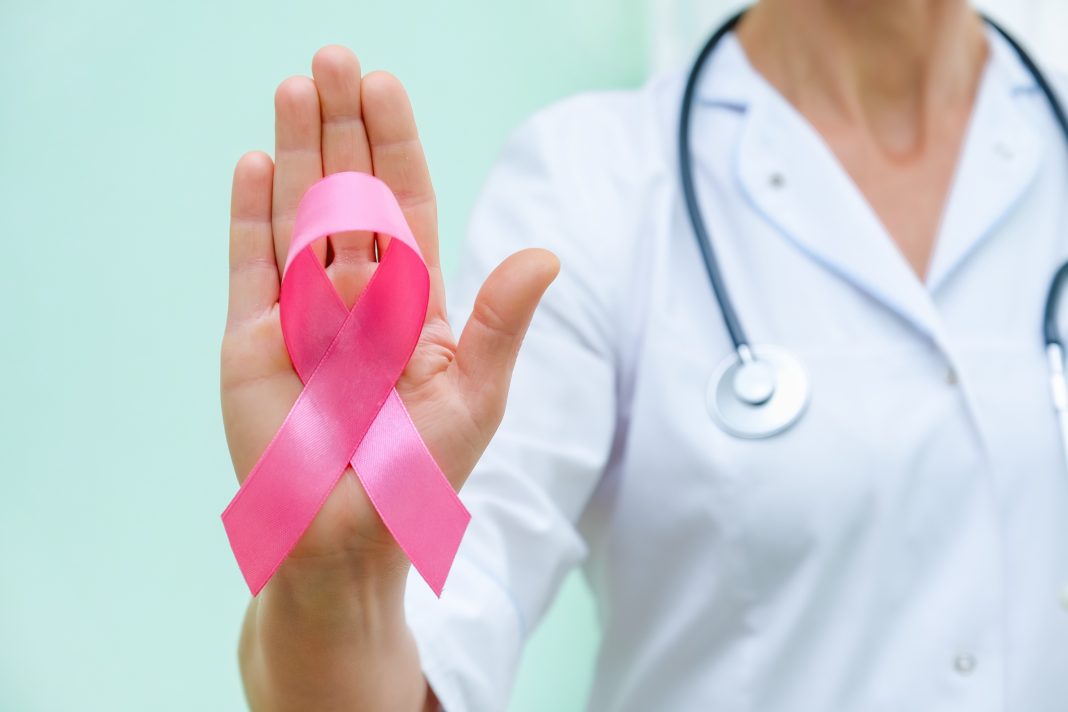While falling leaves and pumpkin spice dominate the annual signs of fall, it’s important to remember another critical autumn ritual: scheduling a mammogram during breast cancer awareness month. At PeaceHealth United General Medical Center in Sedro-Woolley, the Breast Care Suite is giving every patient who comes in for their mammogram a special bag of goodies, including a pocket calendar and pink-frosted cookie. Each patient will also be entered into a raffle for a $100 gift certificate to Max Dale’s Steak & Chop House in Mount Vernon.

The fun and potentially lucrative reminder to schedule a mammogram, of course, is not to obscure the main point: getting a mammogram could save your life.
Doctor Lisa Hazard, a radiation oncologist at United General, says a mild increase in breast cancer deaths may occur nationally because many women delayed their screenings during the pandemic. Early detection of breast cancer, she adds, has helped result in steadily-declining death rates for the disease during the last 30 years or so.
“At least two-thirds of breast cancers are caught at an early stage, where the cure rates are well over 95%,” Hazard says. “If it’s diagnosed at a later stage, then the cure rates go down and the treatments can be more aggressive, with more side effects.”
Approximately one in eight American women will be diagnosed with breast cancer during their lifetime. While breast cancer can reoccur in some women up to 20 years after initial treatment, Hazard says, many women who have their cancer detected early have it completely eliminated without recurrence.
The American Cancer Society recommends annual mammograms be offered to all women once they reach age 40, Hazard says. From age 45 to 55, a mammogram is recommended annually, after which it can be done every other year until a woman’s average life expectancy is less than 10 years. These guidelines are for women at average risk for breast cancer. Women with a family history of breast cancer or with known genetic mutations may need to start screening at an earlier age.
A woman’s primary care provider, Hazard says, can counsel them on how often they should receive a mammogram, and when they can stop in older age.
PeaceHealth Mammogram Services in Skagit
At United General, the Breast Care Suite offers 3D mammography, a process that provides both a more accurate and more comfortable mammogram experience for women.
The 3-D approach is especially helpful for women who have dense breast tissue. This means the make-up of their breasts consists of less fatty breast tissue and more glandular tissue than average. As such, it’s generally harder to spot cancer spots on a scan, Hazard says. However, having dense breast tissue isn’t something women can be aware of on their own.
“It’s not something you can tell just by the appearance or the feel of the breast,” she says. “It’s really something they determine when they do a mammogram, and typically note it in the report.”

When a woman has her mammogram, a radiologist like Mount Baker Imaging’sDr. Sarah Anderson will be looking over the results. Anderson, who specializes in breast imaging and works with the Cancer Center teams at both United General and PeaceHealth St. Joseph Medical Center, will recommend any women with abnormal results come back in for additional testing or even biopsies. This can be achieved through several methods, including an ultrasound or MRI scan of the breast.
These additional screenings are usually done within a couple weeks of the initial mammogram, Anderson says, with review of the initial mammogram done before a patient leaves the building. This way, follow-ups can be scheduled as soon as possible.
United General’s Pink Ribbon-certified breast care suite has a host of state-of-the-art diagnostic equipment that provides safe, effective and time-saving procedures.
United General Cancer Treatment
If cancer is found, PeaceHealth oncologists like Hazard then determine the course of treatment, whether it’s treating the cancer medically with immunotherapies or chemotherapy, or focusing on radiation to precisely target cancer spots.

There are national guidelines for treating breast cancer depending on which stage it’s in, Hazard says, and numerous factors to determine best treatment options. Chemotherapy can be used when there’s concern cancer cells have escaped into a patient’s bloodstream, while radiation often allows women to have lumpectomies – where a lump of cancer is surgically removed – before radiation treats the remainder of the breast to decrease chances it’ll return. For many women, this is obviously preferable to a mastectomy – the complete removal of the breast. As an alternative to or in addition to chemotherapy, there are now a variety of targeted drugs for treating breast cancer, which more precisely impact cancerous rather than healthy cells. These drugs include hormone therapy, which acts on estrogen and other hormone receptors; immunotherapy, which bolsters the immune system to fight cancer, and targeted drugs that are directed against proteins on breast cancer cells that help them to grow and spread.
Schedule a Mammogram in Skagit County
The mammogram can be part of a normal series of preventative screenings, including those for colon and cervical cancer, Hazard says. Scheduling one isn’t difficult, either.
While some patients who screen annually may get reminder phone calls or texts, others should attempt to find novel and helpful ways to remind themselves to schedule. This includes scheduling around a birthday or particular recurring event.
No referrals are required for screening mammograms, and scheduling can be done by a simple phone call at 360.788.6345.
Although many of us lead busy lives, the moments you take to get a mammogram now could help ensure many more amazing, cancer-free moments later in life.
“I strongly encourage women to come in and get their annual screening mammograms,” Anderson says. “It has been proven to help save lives.”
Sponsored




































